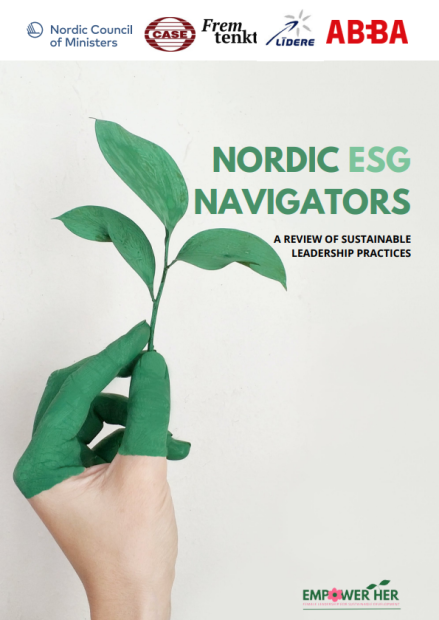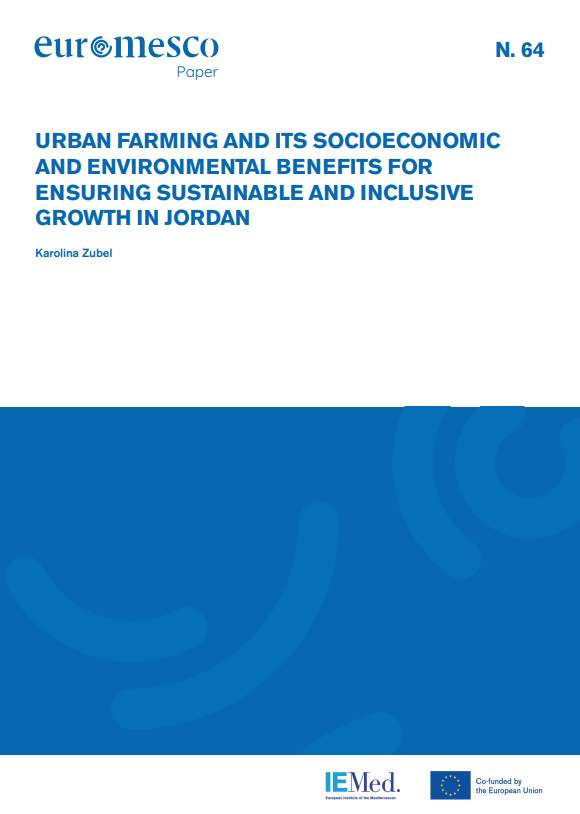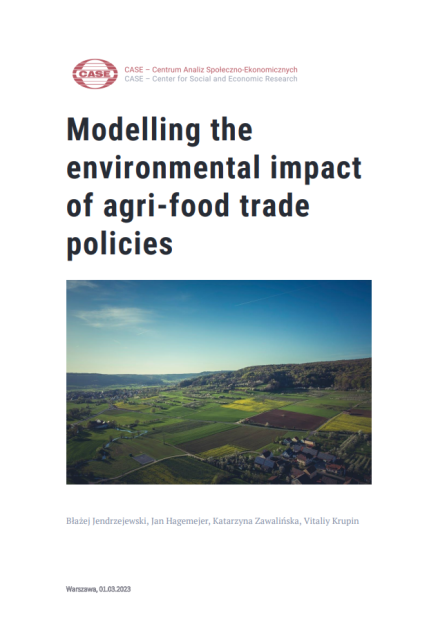This Policy Paper explores the potential of urban farming in Jordan to address the pressing issues of food security, climate-induced risks, and socioeconomic vulnerability in urban centers. With around 92% of Jordan’s citizens living in cities, and a significant refugee population residing in urban areas, the cities are highly vulnerable to disruptions in critical food supplies exacerbated by climate change and external shocks like the COVID-19 outbreak and Russia’s war in Ukraine. Vulnerable groups, including the urban poor, older people, youth, people with disabilities, and refugees in informal settlements, face precarious food and nutrition security.
Urban farming, the practice of growing food in cities, is identified as a crucial solution to feed these vulnerable groups. The paper highlights the efficiency of urban farming, with innovative techniques providing up to 15 times higher productivity than conventional agriculture. Apart from addressing food security and health concerns, urban farming can play a vital role in enhancing cities’ resilience and employment opportunities. Moreover, it can act as a center for community engagement and youth education, while also providing ecological benefits.
Karolina Zubel aims to showcase the environmental, ecological, and socioeconomic benefits of developing urban farming in Jordan from a sustainability and inclusivity perspective. By involving local communities and ensuring social dialogue, the development process can contribute to environmental and socioeconomic sustainability, preventing further vulnerability and exclusion. Additionally, it examines stakeholders’ perceptions, beneficiaries, and inclusivity in decision-making processes. The author explores governance challenges related to urban farm development, and discusses the prospects of such developments within the context of the European Green Deal diplomacy.
The paper’s outcomes present a comprehensive understanding of the potential of urban farming in Jordan, emphasising its role in building resilience, enhancing food security, and promoting social inclusivity. The policy-oriented recommendations are designed to guide future actions and accelerate the development of urban farming across Jordan, fostering a sustainable and inclusive approach to address the complex challenges faced by urban populations.





